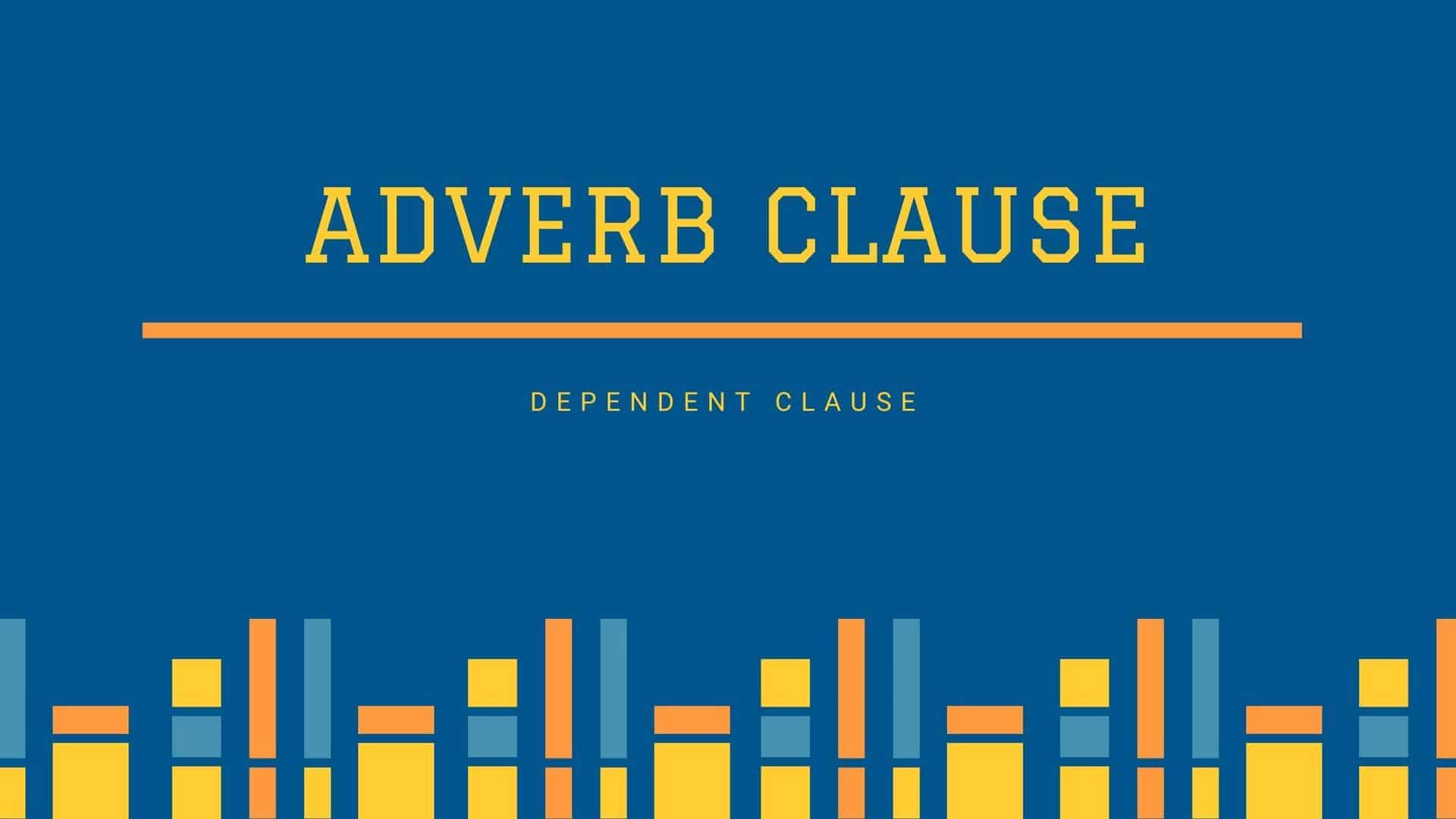Adverb Clause Definition
An Adverb clause (also called adverbial clause) is a subordinate clause (i.e., dependent clause) acting as an adverb. It modifies the main clause and is introduced by subordinating conjunctions such as because, if, when, although, since, etc. There are several types of adverb clauses. They are classified according to their function. Thus there are Adverbial clauses of reason, condition, time, concession, manner, result, etc.
Adverb clause examples with explanation wherever necessary:
- I could not go to the office because I was running a temperature. (Adverbial clause of reason)
- If you come with me, we shall go for the second show. (Adverbial clause of condition)
- When I went to the park, I found only a few people there. (Adverbial clause of time)
Types of Adverbial clause
1. Adverbial clause of concession or supposition
Adverbial clause of concession or Supposition conveys a thought which is opposite to that expressed in the main clause.
- Though it was raining, he went out without taking an umbrella. (Adverbial clause of concession)
2. Adverbial clause of manner
Adverbial clause of manner conveys how something happens. This type of clause is introduced by connectives such as if, as, like, etc.
- He treats me as if I am his son.
3. Adverbial clause of result
An Adverbial clause of result expresses the consequence of the action indicated in the main clause. It is introduced by the conjunctions such as so that, so…that, such… that, etc.
- I did the homework quickly so that I may not be late for the dance class.

Leave a Reply